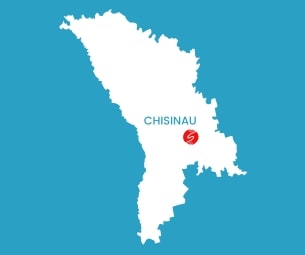Context
The country, although unprepared to welcome such a large population, faced a significant influx of Ukrainian refugees following the large-scale invasion. Nevertheless, the Moldovan government has demonstrated its willingness to integrate those refugees who so wish into society in a sustainable way.
As an EU candidate, Moldova is preparing to meet the requirements for membership. Inequalities persist, and the country’s energy dependence has been accentuated, with electricity and gas prices rising fourfold. Nearly 60% of Moldova’s population lives in energy poverty.
At the start of the conflict in Ukraine, the assistance provided in Moldova focused on basic needs and on supporting the government in receiving and managing refugees. Today, the situation and needs have changed. The focus is now more on rehabilitating water and sanitation networks in rural areas, where more than half the population lives, according to the latest World Bank report in 2018. Support for local authorities and civil society organisations is also essential to promote social cohesion, guarantee access to rights and education, and facilitate access to the labour market.
According to the WFP in Moldova, 9 out of 10 Ukrainian refugees are staying with local people, reinforcing the need for comprehensive assistance to host communities. Moldova has the highest poverty rate in Europe, with 14% of the population living on less than 6.85 dollars a day. The current situation calls for a holistic approach, focusing on sustainability, social cohesion and the strengthening of essential infrastructures.
- 3,435,931 inhabitants
- 80th out of 189 countries on the Human Development Index
Our action

-
Mission
opened in 2022 -
Team
2 international staff
8 national staff - Budget 2M €
SOLIDARITÉS INTERNATIONAL’s strategy in Moldova is based on several timeframes and pillars.
Initially, the aim was to respond to the emergency caused by the large number of Ukrainian refugees in Moldova. The aim of the multi-sector interventions was to :
- guaranteeing the reception of Ukrainian refugees at the border
- provide a dignified transit area for Ukrainian refugees so that they can be integrated into Moldovan society
- provide support to civil society for the reception of refugees in the management of transit camps and the supply of transit kits in particular.
SOLIDARITÉS INTERNATIONAL is currently focusing on facilitating the integration of Ukrainian refugee communities into Moldovan society. The aim of this action is to
- supporting civil society via local players to improve social cohesion
- working in different spheres to provide parallel support for Ukrainian refugees and vulnerable Moldovans, through: access to education, support for children in extra-curricular activities, social, psychological and legal assistance, integration into the labour market, support for vocational training, support for families with children with disabilities, studies on gender inequalities and sex education.
- Building the capacity of local civil society, with a view to integration into the European Union.
- renovate social care facilities.
The third stage of intervention, still to be developed, is that of development to provide a sustainable response to the more structural needs of the Moldovan population.
AFD, UNICEF, Fondation de France
Our impact

Water, sanitation and hygiene
- Construction of emergency latrines
- Distribution of emergency hygiene kits
- Construction and repair of water, hygiene and sanitation infrastructure in transit camps
- Human and solid waste management at transit centres

Social cohesion
- Capacity building for local civil society organisations
- Multidisciplinary studies on the resilience of Moldovan society
Should you have any questions, please contact Xavier Lauth

Vacancies
At head office
Worldwide
Internships
